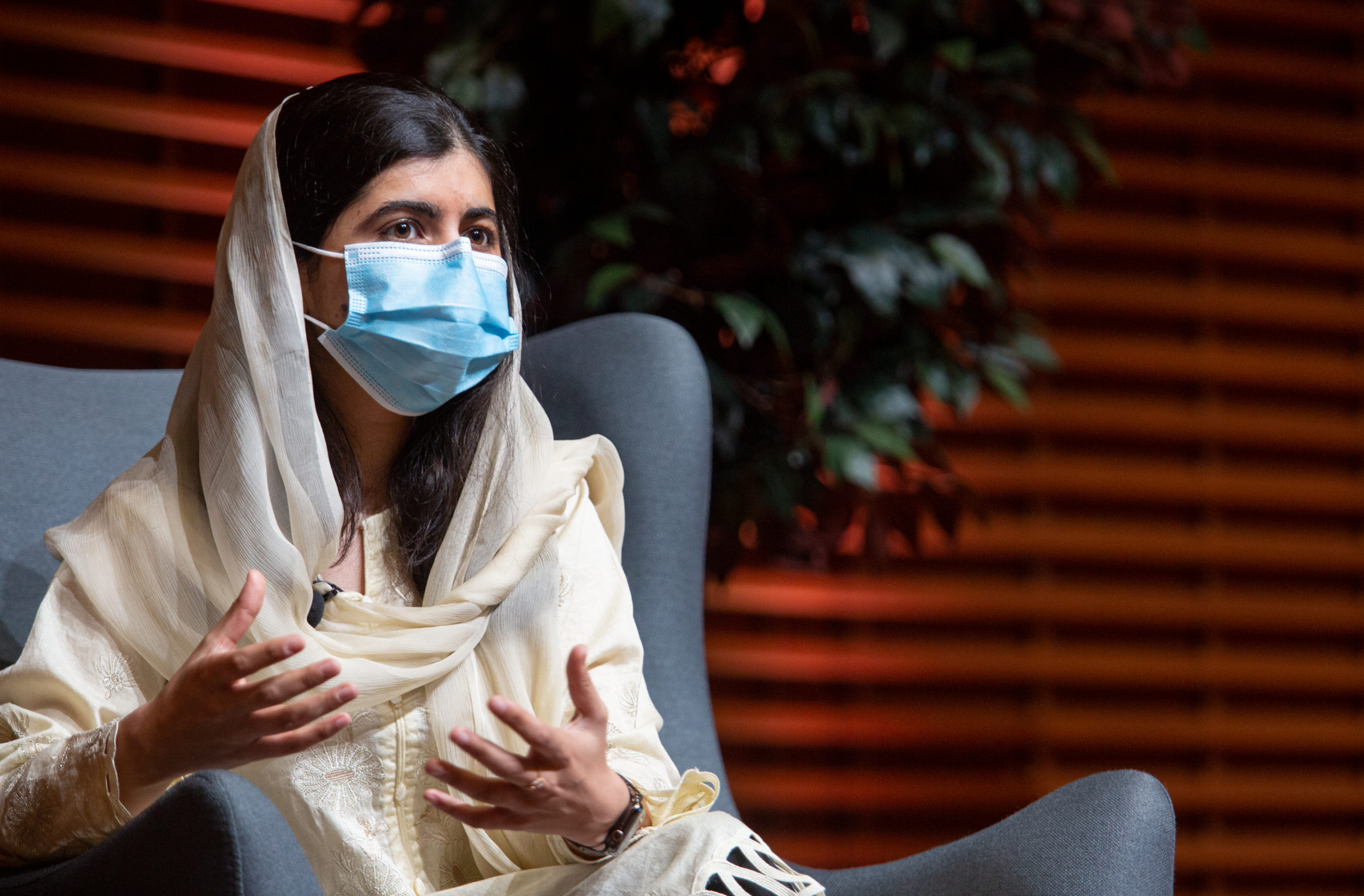Nobel Peace Prize winner Malala Yousafzai said that each person should strive to make a positive change in their community, regardless of their field of study, during a Friday speaker event at the Graduate School of Business (GSB).
Yousafzai, hailing from Swat Valley, Pakistan, has been a relentless advocate for girls’ education for over a decade. She rose to international prominence at the age of 15 after surviving an assassination attempt by the Taliban. As the co-founder of the Malala Fund and the author of the international bestseller “I am Malala,” Yousafzai became the youngest person in history to win the Nobel Peace Prize in 2014.
Yousafzai praised her father, a strong feminist, for his encouragement throughout her life and the influence he has had on her advocacy. She said that he deviated from the culture of men silencing the women in their families to maintain the status quo, which contributed to her confidence and development as an outspoken activist.
“I always tell people that my story is not exceptional — it could’ve been the story of any girl — if their fathers and brothers had allowed them to speak out,” she said.
Yousafzai said that she abides by two principles in her advocacy: to be herself and to speak the truth. And she believes her time is best used when she uses her voice to uplift others.
“I’ve met incredible girls who are fighting for their right to safety and education. Oftentimes I’m expected to inspire them, but it’s the other way around — they inspire me,” she said.
Yousafzai urged the audience — which primarily consisted of GSB students — to bring a change to their communities and countries. She added that their mere presence at a school like Stanford was inspiring for children from different backgrounds, because “when a child sees somebody in their dress, who looks like them, they can imagine themselves in that person’s role.”
Though Yousafzai once said that she was interested in going into politics, she has come to realize that politics is not necessary to bring about change. For now, she plans to continue her activism on the issue of girls’ education, she said.
Yousafzai also has strong hopes that the social norms and stigmas attached to Pakistan may change. The schools she started through her organization are now receiving far more applications than they have spots — a sign of positive change.
While educational opportunities are growing for young girls, there are many differences between schools in Pakistan and Western countries, according to Yousafzai. Subjects such as textiles and cooking that were offered in her British schools were not prioritized back home in Pakistan, a difference which she said challenged her notions of what education really meant. But she also cautioned against the idea of idealizing Western traditions and norms, citing the response to the pandemic as evidence of the West’s shortcomings.
Yousafzai responded to criticism that she does not comment on more social issues by reminding her audience that she is just one person and wants to keep her advocacy focused on girls’ education and issues that she has been involved in. She added that her ultimate goal is to be surrounded by activists whose voices are heard by world leaders.
“Let’s listen to these activists,” she said. “They have something to say to you, and you have been ignoring their voices. Hear from them, and they will tell you what the issues are in this country for girls and women.”
